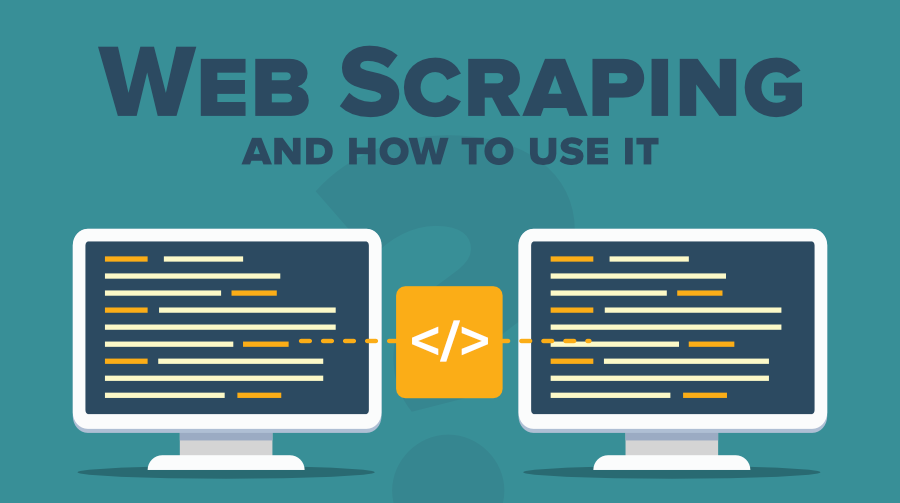Boost Lead Generation Using Web Scraping for Data Insights
In the digital age, data is the king, for businesses seeking to generate leads and drive growth, harnessing the power of data is essential. Web scraping has emerged as a powerful technique that allows businesses to extract valuable information from websites and use it for lead-generation purposes.
Web scraping involves the automated extraction of data from websites—often performed through a proxy server—and includes gathering contact information, product details, pricing, customer reviews, and more. It enables businesses to gather large amounts of data quickly and efficiently, saving time and resources compared to manual data collection methods.
By harnessing the power of web scraping, businesses can save time and resources that would otherwise be spent on manual data collection. With the ability to extract large volumes of data quickly and accurately, web scraping provides a scalable solution for lead generation. It allows businesses to access a vast pool of potential leads, gain insights into customer behavior, and tailor their marketing strategies to engage with the right audience.
It is important to note that web scraping must be conducted ethically and in compliance with legal and privacy regulations. Respecting website terms of service and obtaining consent when necessary ensures that businesses maintain a positive reputation and build trusted relationships with their leads.
We will explore the benefits of web scraping for lead generation, discuss effective strategies and techniques, and highlight the importance of ethical practices. Whether you are a small start-up or a large enterprise, understanding how web scraping can drive your lead-generation efforts can significantly impact your business growth and success.
What is Web Scraping for Lead Generation

Web scraping for lead generation is the process of extracting relevant data from websites to gather potential leads for businesses. It involves using automated tools to scrape information such as contact details, customer reviews, and product information.
This data is then used to create targeted marketing campaigns and streamline the sales process, giving businesses a competitive advantage. More about web scraping you can find at Scrape-it. cloud.
Ways To Use Web Scraping For Lead Generation
There are several ways to use web scraping for lead generation:
a. Extracting contact information: Web scraping allows you to gather contact details of potential leads by extracting contact information, such as email addresses, phone numbers, and social media profiles. This information can be used for targeted outreach and communication.
b. Collecting customer reviews and feedback: By scraping review websites, forums, and social media platforms, you can gather valuable insights and feedback from customers. This data can help you understand customer preferences, improve your products or services, and identify potential leads.
c. Monitoring competitor activity: Web scraping can be used to track and monitor your competitors' websites, social media accounts, and marketing strategies. This information can provide insights into their customer base, promotional campaigns, and pricing strategies, allowing you to identify potential leads and stay ahead of the competition.
d. Gathering market research data: Web scraping can be used to collect data on industry trends, market dynamics, and customer preferences. This information can help you identify potential leads, tailor your marketing strategies, and make informed business decisions.
e. Lead qualification and enrichment: Web scraping can help you gather additional information about your leads, such as job titles, company affiliations, and social media activities. This data qualifies leads and enriches your database, making your lead-generation efforts more targeted. A job scraping software can identify companies actively hiring by extracting job postings from job boards, giving you a valuable edge. This data qualifies leads and enriches your database, making your lead-generation efforts more targeted.
It's important to note that when using web scraping for lead generation, you should comply with legal and ethical guidelines, respect website terms of service, and ensure data privacy and security.
Benefits Of Web Scraping For Lead Generation

The benefits of web scraping for lead generation are numerous. Here are some key advantages:
a. Targeted Lead Generation: Web scraping allows businesses to target specific websites or online platforms where their potential leads are likely to be present. By extracting data related to their target audience, businesses can customize their marketing strategies and outreach efforts to reach the right people at the right time.
b. Data Enrichment: Web scraping helps enrich existing lead data by gathering additional information about potential customers. By combining scraped data with existing customer profiles, businesses can gain deeper insights into their audience, personalize their marketing messages, and improve conversion rates.
c. Competitive Intelligence: Web scraping can provide businesses with valuable insights into their competitors' activities. By monitoring competitor websites and extracting data on product offerings, pricing, promotions, and customer reviews, businesses can stay informed about market trends and adjust their strategies accordingly.
d. Streamlined Sales and Marketing Processes: With web scraping, businesses can automate lead generation processes, saving time and resources. By leveraging scraped data, sales and marketing teams can focus their efforts on qualified leads, resulting in more efficient conversions and higher ROI.
However, it's important to note that web scraping should be conducted ethically and in compliance with legal regulations. Always ensure that the websites being scraped allow data extraction and respect their terms of service.Additionally, consider using encryption software to secure any sensitive information you may encounter or store during the process. This helps protect data integrity and aligns with best practices in data security. When using automated tools, an anti-detect browser for web scraping can help ensure compliance by minimizing detection and maintaining secure, anonymous data extraction practices.
Conclusion
Web scraping has become a game-changer for lead generation. By harnessing the power of data extraction from websites, businesses can gain a competitive edge, target their audience more effectively, and streamline their sales and marketing processes. Embracing web scraping as a part of your lead generation strategy can unlock a world of opportunities and help drive business growth in the digital era.
Web scraping has revolutionized the way businesses generate leads and gather valuable data. With the vast amount of information available online, leveraging web scraping techniques provides businesses with a competitive edge in the market. By automating the data collection process, businesses can save time, resources, and effort while obtaining accurate and up-to-date information..
By staying informed about the latest trends and best practices in web scraping, businesses can stay ahead of the competition and leverage data-driven insights to fuel their growth and success. The ability to gather and leverage data is a key determinant of success. With web scraping as a powerful tool in your lead generation arsenal, you can unlock the potential of data-driven decision-making and propel your business toward sustainable growth and profitability






